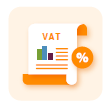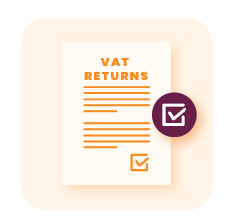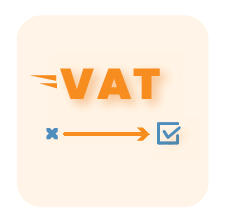Invoicing in Cyprus
In most cases, a VAT invoice is required in order to support an input VAT credit claim. It does not need to be submitted together with the VAT return, but it must be kept and made available for review upon request.
Taxable persons are required to provide VAT invoices to the following parties:
- Individuals or entities in Cyprus who receive taxable supplies of goods and services from them.
- Individuals or entities in other EU Member States who receive taxable supplies of goods and services from them.
- Individuals or entities in other EU Member States from whom they have received an advance payment for a future supply that is either already made or intended to be made.
Learn more about Invoice requirements in Cyprus in our comprehensive guide.
Selling in Cyprus?
Simplified Invoicing
- Date of issue.
- Supplier’s VAT identification number.
- Type of goods or services supplied.
- VAT amount payable – or the information needed to calculate it.
- Specific, unambiguous reference to the initial invoice and the details that are being amended (on a credit note, debit note, or other document treated as an invoice).
Electronic Invoicing
In Cyprus, electronic invoicing is not obligatory, except for B2G transactions where the receipt and processing of electronic invoices is mandatory.
Public entities can receive electronic invoices through the PEPPOL network, a third-party invoicing provider, or the Ariandni platform provided by the Cypriot government.
For other recipients, electronic invoices can be sent through any convenient method, and there are no particular requirements for validation or reporting
Last Updated: 02/04/2024
Disclaimer
The information provided by Global VAT Compliance B.V. on this webpage is intended for general informational purposes only. Global VAT Compliance B.V. is not responsible for the accuracy of the information on these pages, and cannot be held liable for claims or losses deriving from the use of this information. If you wish to receive VAT related information please contact our experts at support@gvc.tax








